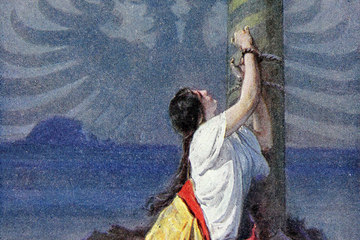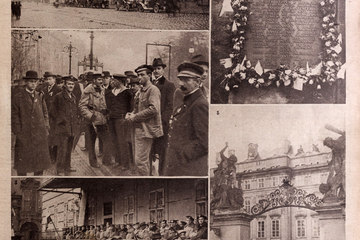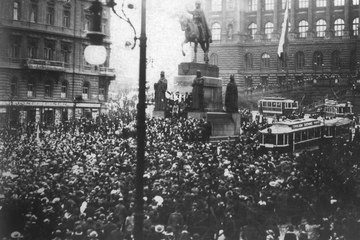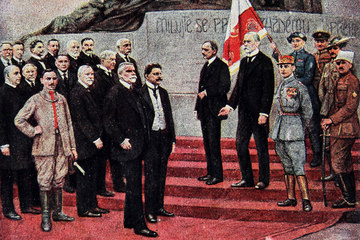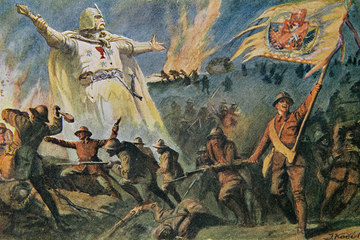The Way to Independence – The Birth of Czechoslovakia
As the First World War wore on, there was a noticeable trend in the Czech political scene away from its previous passivity to a more energetic course of action in the struggle for national independence. The impending future with its threat of a German-dominated Central Europe now caused a remarkably rapid diminishing of the country’s identification with the military objectives of Austria-Hungary.
National independence was envisaged as being achieved with the support of the Entente Powers. In pursuing these plans, Prague profited from the high socio-economic level of development in Czech national society, another reason why the Czechs played a forerunner role in the disintegration process of the Habsburg Monarchy.
In Prague the winning of national freedom was identified with the overthrow of the authoritarian state of Old Austria; its task would be to replace the Monarchy with the ideal of a modern, democratic, respectively republican, and egalitarian society on a national basis. This perspective was accepted in Czechoslovakia far more positively than in (German) Austria, where the rebirth of the state was overshadowed by a feeling of defeat and loss.



